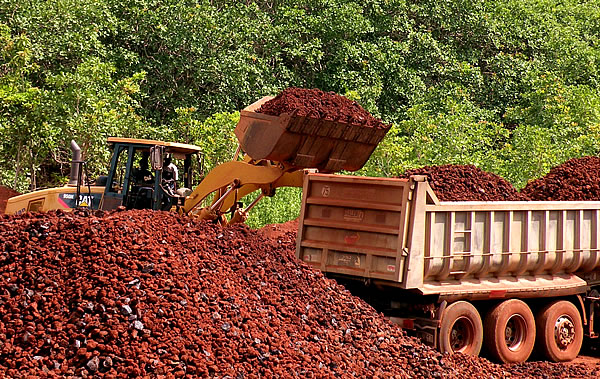
Moves to establish bauxite refinery ongoing
Ghana is putting in place the necessary legislation and infrastructure to establish a bauxite refinery in the next two to three years, Vice-President Mahamudu Bawumia has said.
He said a bill seeking to set up a Bauxite Development Authority to facilitate the establishment of an integrated aluminium industry would be submitted to Parliament early next year after broad consultations with the private sector.
The Vice-President was speaking at the high level African roundtable on mobilising support and accelerating implementation of the Sustainable Development Goals (SDGs) in Accra last Tuesday.
“Our goal is to have an aluminium refinery in Ghana in the next two to three years, possibly by 2019. We are going to look at power and other issues, but there is no reason we should not be refining our gold or bauxite. There is a clear direction that the President has set; we will go with the bill to Parliament early next year and we will move on with the establishment of the refinery.
“We already have an aluminium smelter and we have the bauxite mine; we just need the middle thing, which is the refinery, and then we will see value addition to our minerals,” he said.
Read also: Bawku SHS student dies of meningitis; nine others on admission
Aluminium industry
Dr Bawumia said the establishment of the aluminium industry would be further evidence of the government’s resolve to partner the private sector to achieve the SDGs and make the life of the ordinary Ghanaian better.
Achieving the SDGs, he said, would benefit both the private sector, which would have a healthy, skilled workforce, and the government, which would have fulfilled its obligation to the citizenry to provide a safe, healthy and economically sound environment for growth.
The Vice-President acknowledged the government’s recognition of the crucial role played by the private sector in achieving the SDGs.
“The private sector is going to be very key because the type of resources we need to invest to achieve the SDGs cannot be provided by the public sector alone; it is just not feasible. The public sector is going to be there as a partner to make sure that the investment climate is conducive for the private sector to participate in,” he added.
Roundtable discussion
The roundtable discussion is, as its specific objective, to define fundamental enablers to achieving success in the implementation of the goals at the Africa regional level and the country levels.
It is also a call to ignite action and mobilise regional support for the implementation of the goals; propose practical, smart and innovative actions needed to underpin their accelerated implementation.
The six main issues that the discussion focused on included the policy; institutional and structural levers to accelerate the implementation of the SDGs in Africa; the capacities needed for appropriate data collection to support the monitoring and evaluation of support for the progress made in the implementation of the SDGs; optimisation of infrastructure, technologies and innovation as drivers for accelerating the implementation of the SDGs; innovative approaches to mobilising resources to finance the SDGs and optimising the role, expertise and resources of the private sector.
